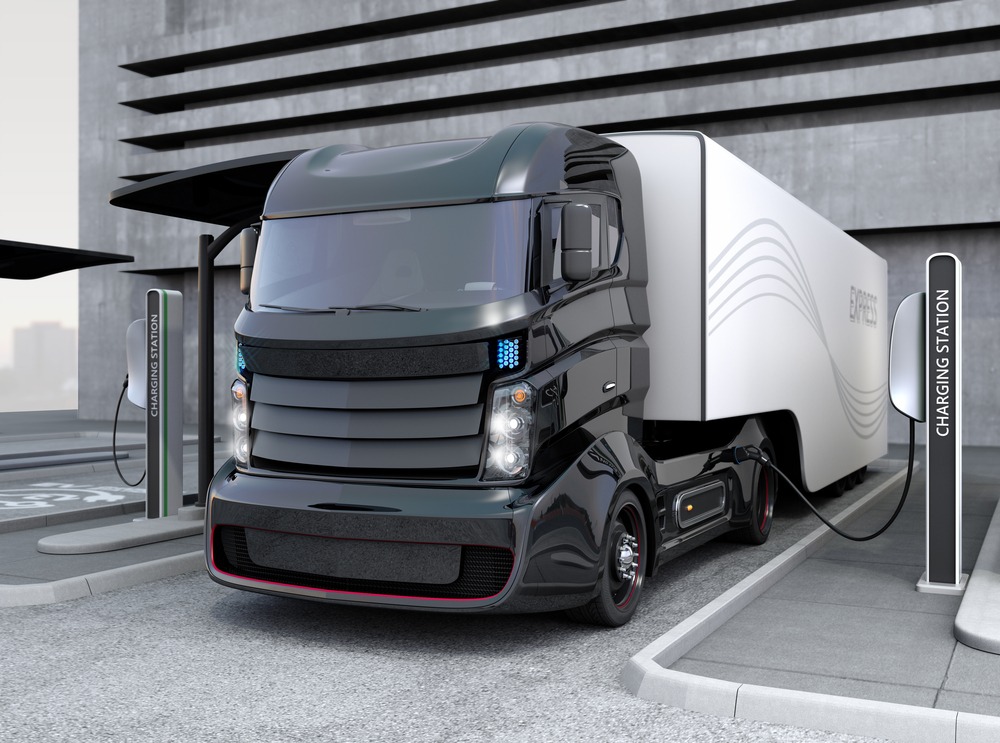

While the growing momentum in the electric vehicle segment globally is mostly centered around passenger cars and two-wheelers in the larger public perception, a vibrant side-show has also to evolve in the freight vehicle segment. Companies like Tesla, Diamler, etc are promising innovative electric freight vehicles to be pushed out of their assembly lines soon, even as the global scale operators like UPS (it has begun inducting electric vehicles in its fleet), DHL and others too are aligned to the larger idea of switching over to the new age trucks in the near to medium run to significantly reduce carbon emissions. Needless to say, the statutory provisions in favour of the electric vehicles in most of the countries have triggered this critical change.
Noted global consultancy and research firm Frost & Sullivan has come out with a report which clearly underlines big-ticket growth potential in the electric and hybrid truck segment by 2025. According to the report, the global light/medium/heavy-duty hybrid and full electric truck segments are expected to achieve annual sales of more than 2.25 million units. The agency has cited a host of reasons for its high electric truck growth forecast ranging from policy shift toward electric powertrains, incentive programs, strengthening emission regulations (especially at urban centers) and rapid technology advancements. Among the countries, China will lead the pack in facilitating use of electric trucks accounting for a hefty 60 percent of the global sales of such vehicles by 2025.
“The case for electric trucks is becoming more compelling with new business models like leasing of trucks and battery packs or fuel cell stacks, the availability of incentives, as well as subsidies driving market change,” said Chandramowli Kailasam, Mobility Team Leader at Frost & Sullivan. “Europe is expected to switch to hybrid or full electric technologies in an active drive towards EU’s 20-20-20 target and to fulfill COP21 promises. In North America, however, awareness of hybrid- electric technologies is expected to be lower than natural gas powertrains as limitations in efficiency gains and recharging points impede adoption rates in the short term until 2020.”
In a nutshell, the report has pointed out some critical imperatives for the high growth trajectory for electric trucks which includes: new players looking to enter the market by developing electric trucks with a range of more than 300 miles, autonomous driving functionality, and aerodynamically streamlined designs. The report also underlines the possibility of large scale investment into battery pack manufacturing and vertical integration of the electric drive train as OEMs try to retain their technology exclusivity.
India’s ethanol initiative has helped India save Rs. 1,26,210 crore in foreign exchange by reducing…
Noida-based green energy leader NexGen Energia Ltd has secured a $1 billion equity investment commitment…
As Odisha takes firm steps toward a just transition from fossil fuels to renewable energy,…
Bio-Integrated cladding for greener cities, an innovative solution by a 29-year-old Indian architect, has won…
In a novel move, Farmwatt Innovation has launched a long-term training and capacity-building initiative focused…
State owned Bharat Petroleum Corporation Ltd (BPCL) has joined hands with GPS Renewables Pvt Ltd…